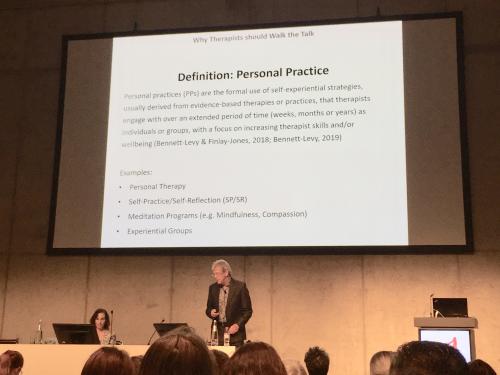CBT World Congress: 2nd conference day - sp/sr, imagery rescripting, personal practice, effective therapists, & compassion
Last updated on 23rd July 2019

Well this was a fascinating day ... I went to my friend James Bennett-Levy's fine symposium on "Self-practice/self-reflection (SP-SR) at 18: an experiential training strategy maturing into adulthood", then on to an interesting & helpful symposium discussing broader applications of Arnoud Arntz's imagery approaches - "Efficacy of imagery rescripting as a transdiagnostic intervention". And to complete the morning's cornucopia I was back listening to James delivering a barn-storming plenary on "Personal practice: why therapists should walk the talk." I sat with Judy, James's wife, and we considered standing to applaud at the end but decided this might be a bit over-the-top, even if richly deserved.
